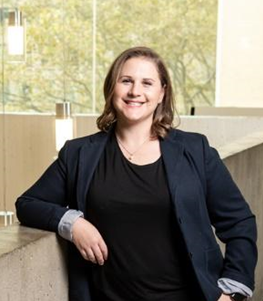
"Taking inspiration from Nature: Bio-inspired systems for sustainability and clean energy"
Significant effort has been devoted to developing technologies to effectively mimic biological processes, but these methods often fail to replicate the efficiency and selectivity of native systems. We have found that by combining chemistry with the inherent activity of biomolecules and microbes, we can improve upon conventional technologies for clean energy and sustainability. Specifically, by combining biomolecular assembly with conventional electrocatalysis, we have improved the specificity and efficiency of electrocatalytic CO2 reduction. Additionally, we have engineered bio-derived microbial coatings to enable their delivery to depleted soil. Finally, by combining electroactive microbes with engineered enzymes, we have developed a platform to degrade and electrochemically detect harmful pesticides. Through these technologies, we have consistently found that the combination of chemistry and biomolecular engineering affords advantages beyond the capabilities of either technology alone.
Ariel L. Furst is the Cook Career Development Professor of Chemical Engineering at MIT. Her lab combines biological, chemical, and materials engineering to solve challenges in human health and environmental sustainability. They develop technologies for implementation in low-resource settings to ensure equitable access to technology. She completed her Ph.D. in the lab of Prof. Jacqueline K. Barton at the California Institute of Technology developing new cancer diagnostic strategies based on DNA charge transport. She was an A. O. Beckman Postdoctoral Fellow in the lab of Prof. Matthew Francis at UC, Berkeley developing sensors to monitor environmental pollutants. She is a CIFAR Azrieli Global Scholar, the recipient of a 2022 3M Non-Tenured Faculty Award, and the Army Research Office Early Career Award. She is passionate about STEM outreach and increasing participation of underrepresented groups in engineering.
